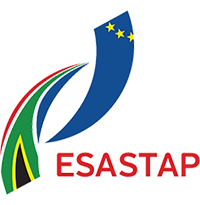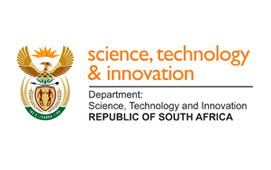Posted: 19 December 2024
The Partnership for Observation of the Global Ocean (POGO) is delighted to announce an exciting new partnership with global ocean exploration nonprofit OceanX and OceanQuest. This collaboration offers unique training opportunities for Early Career Ocean Professionals (ECOPs) aboard the OceanXplorer—one of the most advanced research and exploration vessels in the world.
During the first half of 2025, the OceanXplorer will conduct a series of transects as part of an African research mission. This ambitious mission aims to carry out critical observations and research across diverse marine ecosystems surrounding the African continent. The expedition will focus on Essential Ocean Variables (EOVs), biodiversity assessments, and advancing understanding of ocean circulation, ecosystem health, and marine biodiversity, addressing challenges such as climate change, sustainable resource management, and conservation.
Participants will be able to join/learn from technical experts during the cruise to collect oceanographic, acoustic, and molecular data along the cruise track. Systems on board the OceanXplorer that trainees will have the opportunity to gain hands-on experience with and use include: mapping and acoustic systems, CTD and associated profiling instrumentation/deployed sensors, underway sensors (oceanographic and meteorological), aerosol facilities, molecular laboratories and DNA sequencing machines.
THE TRAINING
Dedicated training cruise legs are planned to the first quarter of 2025, departing from Walvis Bay (Namibia) to Mindelo (Cabo Verde), and from Mindelo to Las Palmas (Spain). While exact dates are yet to be confirmed, the cruises are expected to last approximately 17 days and 5 days, respectively, in mid-March 2025.
Selected participants will join one of these cruises to deepen their knowledge of ocean exploration through intensive training and immersive workshops, enhancing their contributions to ocean observation and advocacy.
The training may include:
- Hands-on sessions on general oceanography, underway measurements, bathymetry, and eDNA (microbiome-focused).
- Media training to enhance science communication skills.
- Engage in scientific projects during the cruise.
WHAT DOES THE PROGRAMME COVER?
The programme covers:
- Airfare between the trainee’s home country and the departure/arrival ports.
- Berth accommodation and meals during the cruise.
- Accommodation before joining and/or after leaving the ship (if required).
The programme does not cover:
- Domestic travel within the trainee’s country.
- Visa costs, personal insurance, or vaccines.
- Salary.
WHO CAN APPLY?
The programme is open to early-career ocean professionals, technicians, postgraduate students (PhD/MSc), and post-doctoral researchers who:
- Are over 25 years old.
- Are nationals of, and actively engaged in, ocean-related work or studies in developing countries or countries with economies in transition (priority will be given to ECOPs from African countries). See eligible countries.
Applicants must have a valid passport and be eligible to enter Namibia, Cabo Verde and Spain. Please confirm your visa requirements before applying.
HOW TO APPLY
To apply, complete the application form by 31 December 2024 (23:59 UTC).
You will be required to:
- State your motivation for attending the training, highlighting its potential capacity-development impact on your home country and institution. Explain how you will benefit from the expedition and, if applicable, how it aligns with an existing scientific project.
- Upload one recommendation letter from your supervisor at your parent institution. This letter must be on institutional letterhead, dated, and signed.
- Upload your CV in PDF format, detailing relevant experience, publications, and previous training.
All documents must be in English. Only complete applications will be considered.
REVIEW PROCESS
Applications will be reviewed by representatives from POGO and partner organisations. The Selection Committee will evaluate applications based on:
- Quality of the application and proposal.
- Candidate’s experience and qualifications.
- Potential to contribute to sustained capacity development in their home country and institution.
- Quality of the recommendation letter.
- Overall relevance and eligibility.


